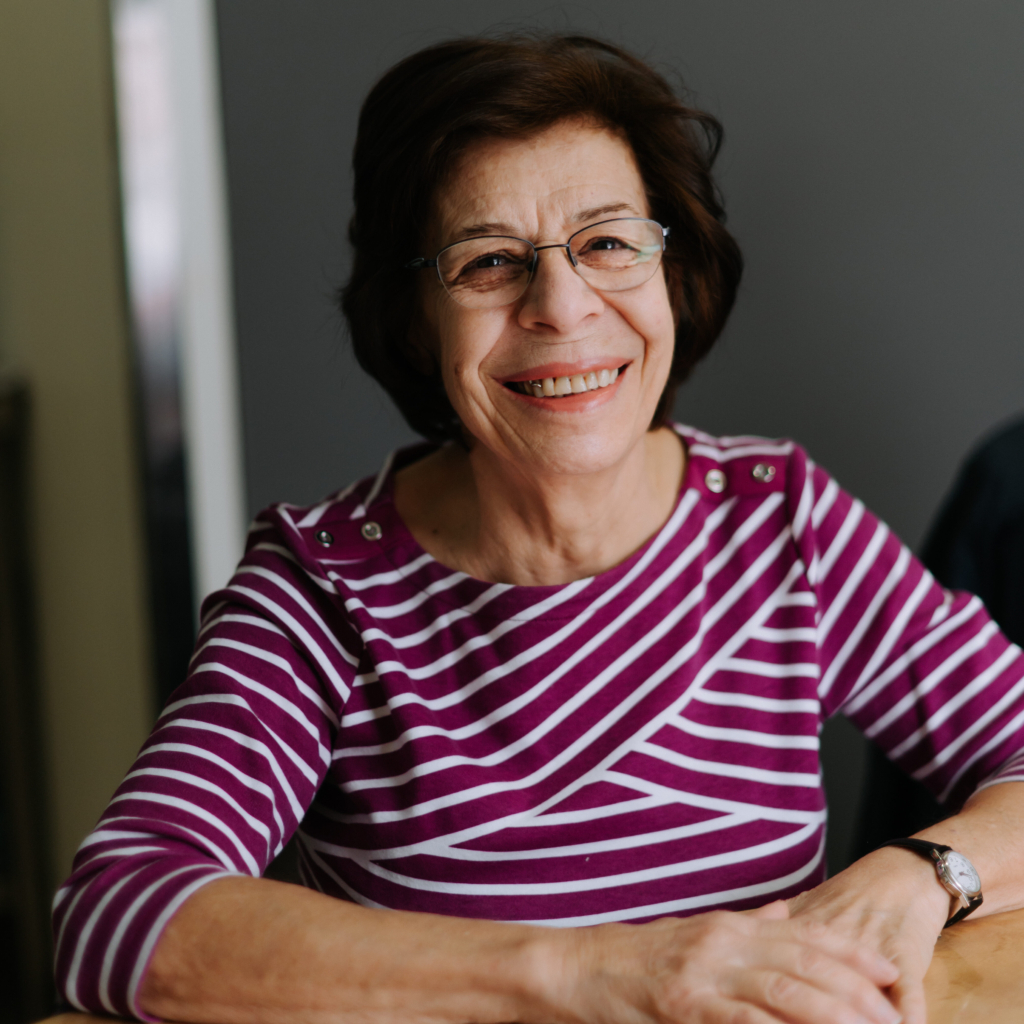In Greater Montreal, nearly one in six—or 770,000 people—is aged 65 and over. Around 104,000 are above the age of 85, with 965 people having made it over the century mark. While some seniors lead very active lives pursuing their goals and hobbies, others face isolation, financial problems, housing challenges, and losses of independence. Economically speaking, 4.7% of this population experiences poverty, while 18.5% live in precarious conditions just above this critical threshold.
Not just one senior reality
The word “senior” covers a wide range of ages and circumstances. While statistics generally only include people aged 65 and up, some community agencies serve people starting from the age of 50.
Different age groups have different needs. For example, people aged 65 to 74 mainly want to sustain an active social life, while 75- to 84-year-olds prioritize health, safety and staying at home. As people move into the 85 and over bracket, they often require more support for their daily activities, for isolation prevention, and for their psychological well-being.
This range speaks to the importance of a well-coordinated continuum of community and institutional services—from local roundtables to specialized agencies—to effectively address these diverse needs.

Centraide: A key stakeholder for seniors’ independence and inclusion
Centraide of Greater Montreal invests over $2.1 million in programs to strengthen the independence, social inclusion, and social fabric of seniors. The focus is on initiatives “for, by and with” seniors in sectors where the health network does not always deliver services.
👍 These initiatives:
- Keep seniors active and involved in their communities
- Promote social connection and prevent isolation
- Support volunteer action and citizen involvement
However, programs exclusively for seniors do not represent the full scope of Centraide’s action. Many partners in fields ranging from housing and food security to family support serve this population in a cross-disciplinary way to offer a broader and more integrated safety net.
🤝 The agencies supported by Centraide:
- Accompany people and provide them with transportation to medical appointments
- Provide them with grocery support and daily assistance services
- Make friendship calls or socialization visits
- Run social and cultural activities to strengthen community ties
- Organize mentoring activities with young people or young families
- Set up volunteer opportunities to help people stay active and engaged

For 40 years, Centre SCAMA has been serving seniors with reduced independence, providing services and activities that let them stay active and connected to their community while continuing to live in their homes.
✅ Main takeaways
- 18% of Greater Montreal’s population is aged 65 and over, representing more than 770,000 people. Around 104,000 are over 85, and 965 are centenarians.
- 1 in 3 seniors (31.4%) lives alone, a share that exceeds 50% in some of Montreal’s central neighbourhoods, such as the Centre-Est or Sud-Ouest.
- 4.7% of seniors live in a situation of poverty; however, 18.5% are just above the low-income cut-off and are still in a precarious situation.
- 40% of seniors who live alone spend over 30% of their income on housing, which is double the average for seniors.
Sources:
- CIUSSS du Centre-Sud-de-l’Île-de-Montréal, Direction régionale de santé publique (2024). Enquête montréalaise sur les conditions sociales et la participation des personnes de 55 ans et plus.
- Logis Retraite (2025). Quel est le prix d’un logement en RPA à Montréal ? [Website].
- Association québécoise des retraité(e)s des secteurs publics et parapublics (AQRP) (2024). Fermetures de RPA : plus de 1 400 locataires évincés en 2024. [Press release].
- Direction régionale de santé publique, CIUSSS du Centre-Sud-de-l’Île-de-Montréal (2024). Montreal’s 2022 point-in-time count of people experiencing homelessness. (Portrait by age group.) [PDF]
All other data comes from Statistics Canada’s 2021 census.
1 out of 5 people receives our help.
5 out of 5 people benefit from it.
Let’s all lend a hand
Supporting a network of over 375 community agencies also means promoting an inclusive, poverty-free society.



